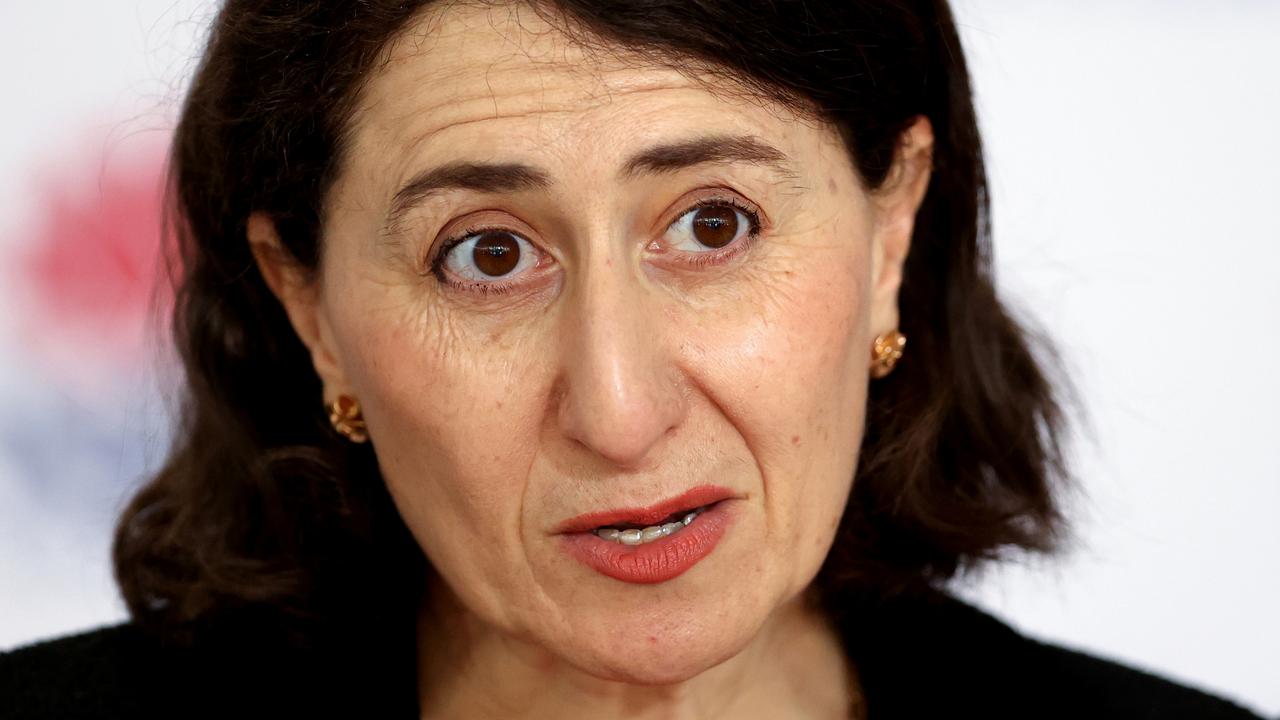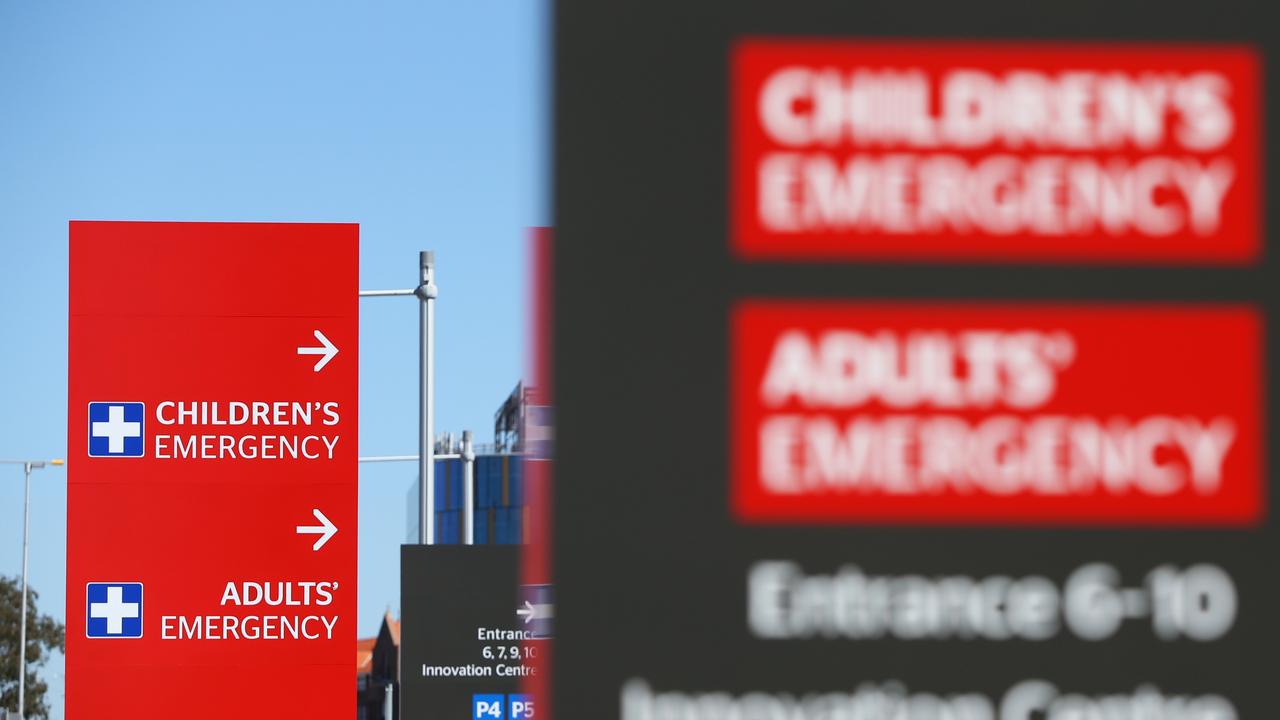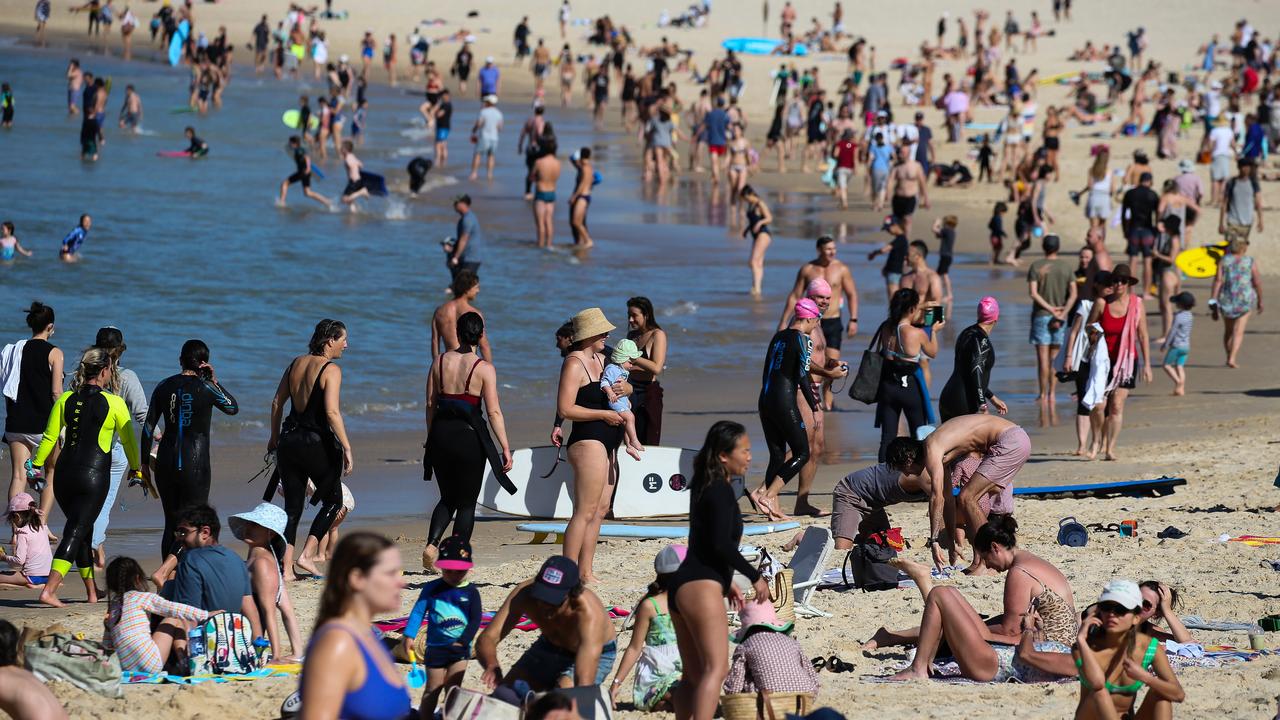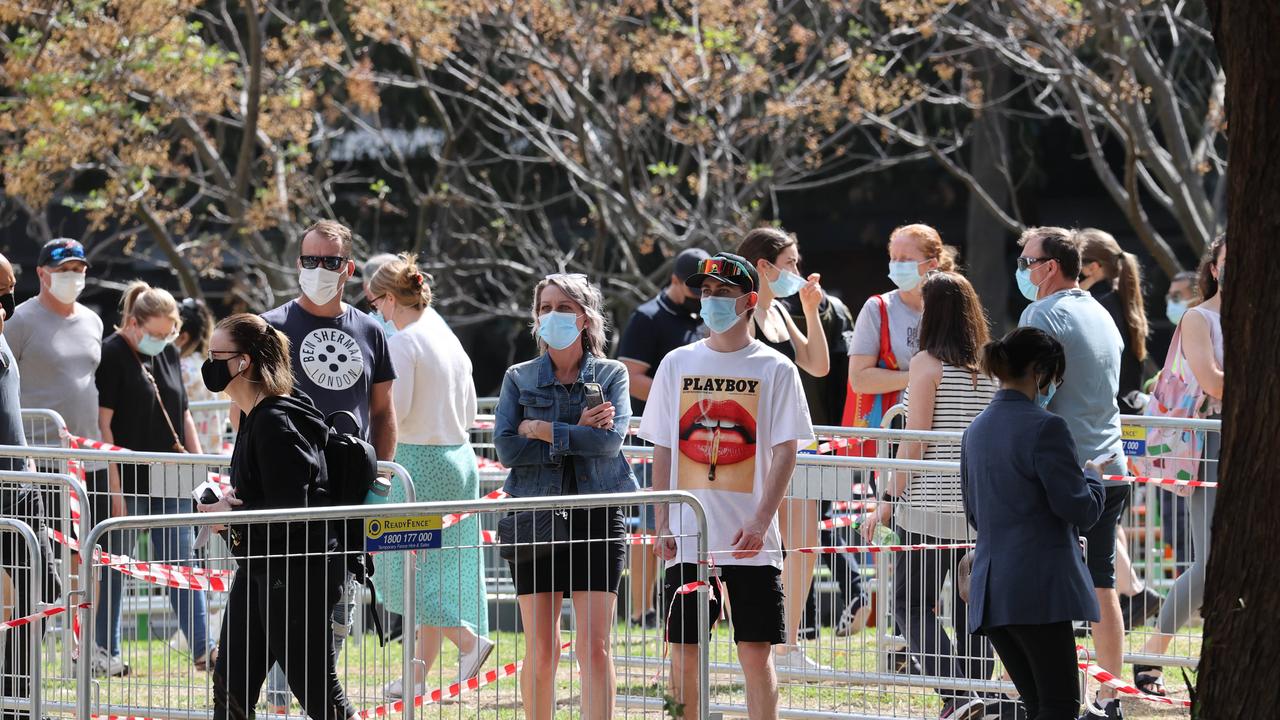Warning New South Wales may have to ‘reverse’ Covid-19 freedoms
The first of many new Covid-19 freedoms is here for Sydneysiders, but experts are worried that they won’t last long.
The long road out of Sydney’s extended lockdown has begun, with millions of fully vaccinated people allowed to gather outdoors in groups of five from today.
It marks the first step in an ambitious plan to reopen New South Wales, despite rising cases of Covid-19, with “Freedom Day” now just over a month away.
However, experts warn the road map is far from set in stone and normal life remains a long way off.
Modelling by the Doherty Institute, which has guided the reopening framework, suggests an 80 per cent vaccination rate is sufficient to begin easing restrictions. NSW will move earlier, deciding to give freedoms to those who are vaccinated when the double-jab rate hits 70 per cent.
“The NSW road map looks reasonable – we have to open up at some point, and this plan seems a reasonable plan,” Tony Blakely, an epidemiologist and public health medicine specialist at the University of Melbourne, said.
“However, a good plan does not mean it will work – especially with Covid-19. What will be required is very close monitoring of daily cases after each incremental opening up.
“If the daily numbers surge, and a forecast suggests the numbers will surge beyond whatever the threshold of daily cases that NSW is prepared to tolerate, then some opening up will need to be reversed.”
Greater liberties for those vaccinated are justifiable, but a high level of caution will still be needed, Professor Blakely said.
And if the state’s already stretched hospital system is pushed to the brink of disaster, as many healthcare experts fear it will be, then the plan may need to be abandoned.
Questions hang over plan’s safety
As the vaccine rollout continues at a rapid pace, the hope of life returning to normal is beginning to crystallise, with many Sydneysiders enjoying a new freedom from today.
Groups of five fully vaccinated adults who aren’t in local government areas of concern are now allowed to gather outdoors to socialise.
A raft of perks in NSW, like dining out at restaurants, visiting pubs and going to hairdressers are due to come into effect from October 18, if the fully vaccinated rate hits 70 per cent.
And even more freedoms will be rolled out at 80 per cent fully vaccinated.
Authorities have warned that with that gradual easing of restrictions will come a sustained rise in new cases – and inevitably, deaths.
But Emma Miller, a public health epidemiologist at the College of Medicine at Flinders University said there had been a “glossing over” of just how many people will become ill or die.
“A public discussion and some consensus on what sort of numbers the community will accept is really required here,” Dr Miller said.


There are also real and concerning signs that both the NSW contact tracing system and the healthcare system is already straining under current case numbers, she said.
“It may be that existing loads are unsustainable and perhaps unable to cope with increases in case loads that will be associated with implementing the NSW road map.”
Dr Miller is also concerned about inequities in the road map – specifically, the divide between the vaccinated and unvaccinated.
“There appears to be in-built inequity in the freedoms that will be extended to the fully vaccinated, with already disadvantaged groups less likely to be able to avail themselves of these opportunities relative to more advantaged sections of the population,” she said.
“Such apparent assaults to social cohesion will negatively impact on the implementation of the road map, given it utterly depends on the ongoing compliance of everyone in NSW.“
Move to temper expectations
Compliance with lockdown measures across Sydney – which are tougher in the southwest and west of the city – has been patchy, which is reflected in the still-high daily case numbers.
On Monday, NSW recorded 1257 new cases of Covid-19 and seven deaths.
Premier Gladys Berejiklian fronted the media to deliver a covid update, and while her tone remains upbeat, she did seem to leave the door open to returning restrictions in the future.
“Today, there has been some easing of restrictions after we passed that six million jab number, but it‘s way too early for any of us to get complacent,” Ms Berejiklian said.
“While people start enjoying some things they couldn’t enjoy last week, I urge the community, please do not get complacent, do not let your guard down, because any event that we don’t anticipate or expect could see our major setback and none of us want to see that happen.”
Amalie Dyda, an infectious disease epidemiologist and senior lecturer in public health at the University of Queensland, said more freedoms will be enjoyed in coming months.
“But this will be an evolving situation that requires constant monitoring and changes in response to the local spread of disease, with all states and territories likely to require low level restrictions for some time,” Dr Dyda added.

The reality of the Delta strain is that vaccines alone aren’t enough to totally contain it, and the risk of potentially deadly outbreaks and further mutations means public health measures must remain in place.
That’s the view of Raina MacIntyre, head of the biosecurity program at UNSW’s Kirby Institute and an infectious diseases expert.
“We will need to continue some level of public health measures to contain epidemic growth to ensure that we do not overload the health system,” Prof MacIntyre said.
“We also need a more comprehensive plan to protect children and enable schools to stay open, which requires safe indoor air in classrooms, as Victoria has begun planning for.
“Most kids, even those 12 and over, will not be vaccinated soon, and as seen in other countries, the virus will spread in the unvaccinated.
“We must also ensure that vaccination targets are met for Aboriginal communities in NSW, and other disadvantaged communities, before travel to regional NSW commences, or these communities will suffer disproportionate outbreaks.”

A tale of two nations
Australia will remain a deeply divided nation for the foreseeable future, Dr Dyda believes.
Victoria and NSW might’ve abandoned their Covid elimination ambitions, but other states and territories have not, meaning different rules and regulations around the country.
“Those states pursuing Covid-zero may have greater freedoms, almost resembling pre-Covid life, with generally low levels of restrictions such as mandatory venue check-ins – though strict lockdowns would be likely when cases do appear,” Dr Dyda wrote in an article for The Conversation.
By closing themselves off and maintaining a zero-tolerance approach to outbreaks, those jurisdictions could ironically offer greater freedoms for residents than NSW and Victoria, she said.
“States like NSW and Victoria will require ongoing low-level restrictions, such as masks and capacity limits — even with vaccination rates of 70 per cent to 80 per cent of over 16s.
“Moderate or strict lockdowns would likely still need to occur in response to rising case numbers and local outbreaks.
“The importance of ongoing low-level restrictions has been shown consistently by Australian modelling and is highlighted by the current rise in case numbers in the highly vaccinated population of Israel.”
Freedom unlikely to be easy
Anyone who’s had to cancel or postpone interstate travel at the last minute due to border closures or lockdowns has already experienced a frustration that could become increasingly common.
The most significant impact of a lack of uniformity between the states and territories will be on travel, Dr Dyda wrote.
NSW and Victoria is likely to be comfortable with free movement, while elimination jurisdictions will have a low appetite for risk.
“Restrictions imposed to date would suggest travel between Covid-zero states and territories, who haven’t had any recent Covid cases reported, would be allowed,” Dr Dyda believes.
“There’s also the possibility of interstate travel occurring between jurisdictions with ongoing community transmission.”
On the international front, there are hopes that travel from and to Australia could resume as early as mid-December – but many questions remain unanswered.
How Australian authorities will process arrivals and whether they must quarantine, and whether rules will be universally adopted across the states and territories, is very unclear.
More Coverage
Which vaccines the Commonwealth will accept in foreign travellers is also unclear. Will those inoculated with one of China’s two jabs be allowed into Australia?
“Part of that issue is going to be about, our biggest market has always been China, China is (the) Sinovax (vaccine),” Margy Osmond, Tourism and Transport Forum chief executive, told 4BC radio.
“What about India’s vaccine for example, one of our biggest potential markets? There are a whole range of imponderables about what equals a vaccination.”





